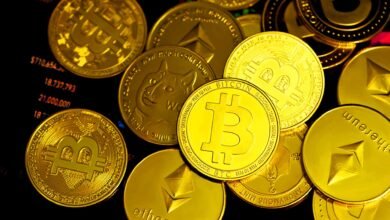
The stock market and the foreign currency exchange (forex) marketplace are two major venues for assets dealers. The ability to utilize the forex market more than the stock market has become one of the main causes why some investors favor it over the stock market. On the other hand, some like the stock market’s administrative protections.
To newcomers, the gap between forex trading and other marketplaces, such as the stock market, might show a significant effect. This isn’t to say they’re the same, though. Few professional traders have ventured outside the confines of their recognized market domains until they have thoroughly prepared and researched the market opportunity.
Considering their commonalities, currency trading has its features. First, let’s look at how the forex industry varies from stock markets.
What is the Foreign Exchange Market?
The forex market, often known as the ‘foreign exchange rate,’ is where assets may be purchased, traded, and swapped. Companies, existing retail merchants, and sometimes even travelers who need domestic currency are all players in this marketplace.
The interest rate, which would be the worth of one exchange rate of another – how most of one denomination is required to purchase one item of another currency – influences the cost during which market players purchase or trade commodities.
What exactly is the stock exchange?
What does a stock do accurately? You are effectively purchasing a portion of a firm when you acquire stock or share. The larger your proportion of ownership in a corporation, hence more stocks you buy. Dividends are paid to investors on a yearly or weekly basis by most firms.
The stock market comprises multiple platforms that exchange various equities from various corporations. This system of exchanges allows people to purchase and trade commodities.
What Sets the Forex Market Apart from Other Markets?
1. Trading Market Open 24 Hours
Unlike the stock market, the forex service is available 24/7 a day and is neither limited to a single nation. Tokyo starts the global exchanges, and so when Tokyo shuts, London tends to take control, and the New York economy goes active until Tokyo wakes again afterward. In the case of stock trading, this smooth continuation is not attainable.
The forex markets are more accessible than the stock markets. Investors may trade equities almost 24 hours a day, Monday through Friday, but accessing all exchanges is difficult.
Most sales stock investors sell through some U.S. stockbroker during a single large trading session, which runs between 9:30 a.m. to 4:00 p.m. EST. Even though there is a considerably lesser “after-hours” trading market, those periods are often less prominent
than ordinary market hours due to a lack of availability as well as other concerns.
Forex trading, on either hand, is considerably simple to execute 24 hours a day, seven days a week.
There are numerous forex trading organizations across the globe, and trade time has always been in one of the time zones.
2. Trading on a single exchange
The preceding argument also identifies the notion of single transaction trade as nullified, with upwards of trading taking its place.
3. Market for Stocks
The equity market is composed of an infinite number of stocks that have been regulated by various technological and economic analysis criteria and indexes that were not present in the FX market.
4. Liquidity
The forex market is the globe’s largest currency market, but not even the combined transactions of all the nation’s equities exchanges can match it. As a result, liquidity is not a concern.
The currency market is a completely different universe. Even though a nation’s money production fluctuates, there will always be a massive amount of money to exchange. Because all major international currencies are quite liquid, the product price of the two economies’ trading activity is significantly different. The acquisition of 10,000 shares of stock may influence the stock rate.
5. Commissions
There have been no charges to pay to intermediaries because you are trading straight in money rather than stocks or bonds, which seem to be contractual items with a tendency to change significantly.
6. Long-term depreciation of currencies is possible
Currencies can fall over time, but prices will haven’t ever hit nil; that’s an inconceivable situation in the forex market. Therefore, traders can keep their risky assets going for as long as they want without worrying about losing their money.
7. Limits on Leverage
Traders using a financial asset can utilize up to 2:1 leveraged in trading stocks. Daily dealers, on the other hand, who initiate and terminate their contracts in a single day and have a deposit of much more than $25,000 may operate with up to 4:1 leverage.
- Since you may accomplish this, you must meet specific prerequisites.
- Not everybody has access to a margin requirement, which would be required to leverage in the stock market.
8. Pairing of Trades
Currency pairings have always been mentioned in transaction currencies. Not only must you evaluate the nation’s economic welfare with whom the currency you are dealing, but you should also examine the economic health of the nation you are dealing against.
Markets have a lot in common
Although these distinctions, there are certain parallels and similarities between the two markets. However, the parallels are not large enough to allow a comfortable victory between markets, as stated at the outset. Let’s have a glance at the parallels right now.
1. The approaches are the same
Protracted trading methods are similar in that they both need thorough fundamental and technical analysis of the asset or exchange pair at hand.
2. Similar settlements
Settlements and cash transactions are comparable ideas.
3. Parameter swapping
The trading criteria are all the same in terms of technical analysis.
Final Thoughts
The stock market is more known among most traders than currency, and this expertise may be reassuring. Everyone else will enjoy the increased threat balance which accompanies trading in an uncontrolled FX market with large credit. Trade cautiously and use stop-losses to limit your danger, whatever option you pick.







